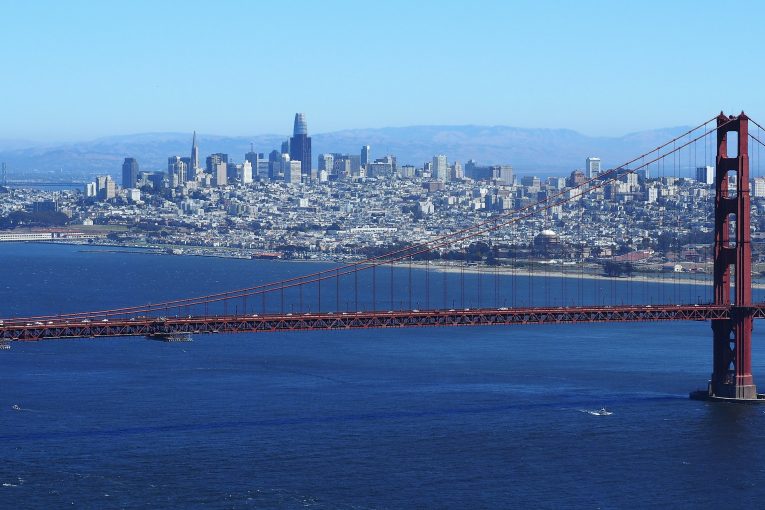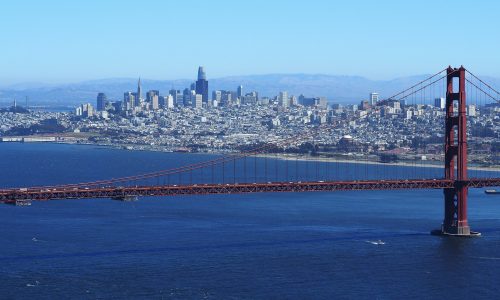

Via Wikimedia Commons

This work is licensed under a Creative Commons Attribution-ShareAlike 4.0 International License.
By The Vanguard Staff
SAN FRANCISCO, CA – A national nonprofit – Civil Rights Corps – known for fighting for systemic injustice in the U.S. legal system said this week its filed an Amicus Brief and joined the San Francisco’s Public Defender Office in its call for the California State Supreme Court to weigh in on San Francisco Superior Court’s trial backlog.
Civil Rights Corps said the backlog is “denying nearly 1,000 individuals of their Constitutional right to a speedy trial, and more than 120 of these individuals are languishing in San Francisco jail for months and even years past their trial deadlines, subject to near-lockdown conditions and no sunlight.”
“Our organization was moved to support the San Francisco Public Defender’s Office in challenging the injustice of this situation,” said Peter Santina, a managing attorney at Civil Rights Corps.
“When the right to a speedy trial is not respected, people face unpredictable, lengthy delays in their case, increasing the pressure to accept plea deals, even for crimes they did not commit, simply to end that pretrial misery and uncertainty,” Santina added.
Civil Rights Corps said its filed an amicus brief with the California Supreme Court – expected to rule in May – supporting the San Francisco Public Defender’s Office’s request for a review of a lower court’s decision in Estrada v. The Superior Court of the City and County of San Francisco.
In that case, said Civil Rights Corps, “two SF Public Defender clients are seeking to have their charges dismissed due to their trials being delayed far past their Constitutional trial deadline. But the 1st District Court of Appeal ruled in February 2023 that the backlog was caused mostly by COVID-19, which constituted ‘good cause’ for the delays.”
“The SF Public Defender contends that while COVID-19 was an initial factor in the delays, the court has been unacceptably slow to re-open sufficient courtroom space for trials since the San Francisco courthouses resumed jury trials in June 2021. In the months following re-opening, the court allowed multiple judges to take vacations and continued to leave its trial courtrooms half-empty,” added Civil Rights Corps.
“The right to a speedy trial is enshrined in the Constitution for a reason,” said San Francisco Public Defender Mano Raju. “It is a sacred right. But too many people in San Francisco are waiting months and years, often in jail or shackled to 24/7 ankle monitors, just to get that chance.”
“We appreciate that Civil Rights Corps has joined our efforts to challenge this backlog, and urge the California Supreme Court to take up this urgent matter,” Raju added.
“While other counties in California have addressed COVID-related trial backlogs by opening additional courtrooms, mobilizing personnel to conduct trials, and dismissing cases that went beyond the speedy trial deadline, San Francisco’s court has failed to adjust its operations to adjudicate or dismiss overdue trials. The court continues to use COVID as an excuse, even though virtually all public health restrictions have been lifted,” said Civil Rights Corps in a statement.
Civil Rights Corps said “community members have seen their lives completely upended by the backlog only to have charges dismissed at trial,” citing a November 2022 case where, “a judge dismissed charges against Sarina Borg, a mother who was accused of aiding and abetting a homicide in May 2020.”
Civil Right Corps charges Borg’s trial “came two years past her Constitutionally mandated deadline, and she was caged in the San Francisco Jail for 2.5 years total.”
The groups also cited a January 2022 case, where “a jury acquitted former firefighter Stephen Kloster of felony assault charges after deliberating for a day and a half. Kloster, the primary caregiver for his 87-year-old mother who suffers from schizophrenia, had spent 410 days in jail, including 274 days past his trial deadline.”